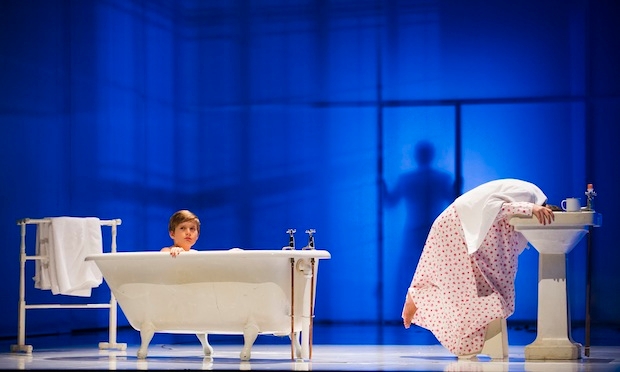We all know that ‘They fuck you up your mum and dad’, but nowhere is this more reliably (and violently) true than in the opera house. If you have the misfortune to be born into an operatic family you can expect to be murdered by your own mother (Médée, Lucrezia Borgia), killed by your grandmother (Jenufa), or even bumped off by a hitman hired by your father (Rigoletto).
Perhaps most insidious, however, are the crimes not of violence but of absence, neglect rather than active cruelty. Productions of Verdi’s I due Foscari and Britten’s The Turn of the Screw whispered some of the darkest unspokens of parent-child relations, conjuring nightmares all the more potent for their subtle horrors.
Britten’s ‘curious story’ of a governess caring for two orphaned children in a remote house is a miracle of taut construction. Running at less than two hours, with a cast of six and an orchestra of just 13, its slender precision mirrors Henry James’s original. But Britten’s musical narrative has a built-in device denied to the prose-bound James. Constructed around a single theme, the work unfolds in 15 variations, each ‘turning the screw’ just a little tighter on this single idée fixe. In Jonathan Kent’s endlessly inventive production for Glyndebourne (originally seen in 2006), these variations go from musical transitions to the dramatic engine driving this domestic tragedy to its terrible conclusion.
The cosy 1950s naturalism of Paul Brown’s set is framed by a double, circular revolve. Almost perpetually in motion, propelling beds and baths, children and their ghostly doubles into and out of view, it suggests unseen agency. At its centre is a giant glass panel which twists and shifts with each changing scene. Endlessly reinventing itself, first greenhouse, now French windows, then frozen lake, it remains always a membrane — increasingly and terrifyingly porous — between two worlds.







Comments
Join the debate for just £1 a month
Be part of the conversation with other Spectator readers by getting your first three months for £3.
UNLOCK ACCESS Just £1 a monthAlready a subscriber? Log in